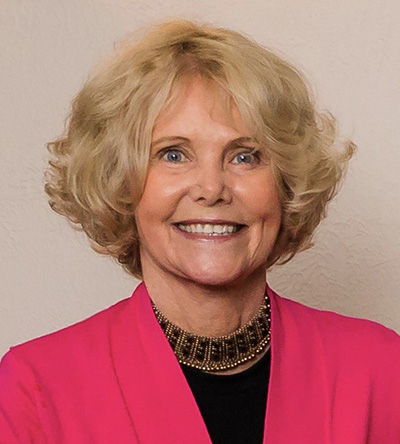Digital technology has revolutionized the way we learn, work, communicate and connect with all kinds of information and resources. But access to digital content for the growing number of people in our world living with disabilities has not always kept pace, threatening to leave this group behind in areas like education, employment and more.

Sheryl Burgstahler, Instructor for the UW Specialization in Web & Digital Accessibility
In recognition of this challenge, University of Washington Professional & Continuing Education is offering a new online Specialization in Web & Digital Accessibility. This 12-week introductory program, which launches in the spring of 2025, is designed to meet the growing need for professionals with the skills and knowledge to ensure that today’s digital content is fully accessible to anyone with a disability.
Accessibility Mandates Drive Change
In April 2024, the U.S. Department of Justice (DOJ) ruled that all state and local governments must take action to make their online content and mobile apps fully accessible, per Title II of the Americans with Disabilities Act (ADA). The ruling also applies to all public schools and postsecondary institutions, such as colleges and universities.
Any company that wants to market their IT products to any of these entities must adhere to the DOJ mandate or risk losing business. The ruling should generate increased demand for professionals who have a basic understanding of the latest accessibility requirements, tools and methods.
“The time is now to understand these IT accessibility requirements and take action,” says Rovy Branon, vice provost for UW Continuum College, the academic unit that oversees UW Professional & Continuing Education. “Specializations like this one are how we can help create accessibility at scale and eventually impact the lives of millions of people living with disabilities.”
Learn from Experts in the Field
I see this course as a great entry point for instructors, administrators, content developers and others who want to understand the new digital content standards and help their organization move toward compliance.
—
Instructor Sheryl Burgstahler
Sheryl Burgstahler, the award-winning leader who led accessible IT efforts at the University of Washington for more than 30 years, will teach the inaugural offering of the specialization. Burgstahler, who has devoted her career in part to advocating for the universal design of websites, documents, multimedia tools and other digital products, says the DOJ ruling — and this educational opportunity — come at a pivotal time in the fight for making digital content more broadly accessible.
“I see this course as a great entry point for instructors, administrators, content developers and others who want to understand the new digital content standards and help their organization move toward compliance,” she says. “Students will also learn from reports by people with disabilities who share how inaccessible technology impacts them, and how accessible technology opens doors in all aspects of their lives.”
The new UW program gives learners hands-on practice in creating or refining content for digital documents, websites and multimedia experiences so that it can be navigated and understood by people of all abilities. Topics covered include assistive technology, universal design frameworks, and accessibility checkers and other tools.
“This specialization will equip students not only with the skills and best practices to create accessible content, but also with the awareness and mindset to center accessibility in their design and content development from the start,” says Mary-Colleen Jenkins, an instruction accessibility specialist at the UW who provided input for the course.
Preparing for the Jobs of Tomorrow
UW Continuum College has more than a century of experience providing professionals with the training and skills they need to adapt to fast-changing occupational expectations.
Employer needs are still evolving, but the DOJ ruling is expected to spur growth in demand for workers with IT accessibility knowledge and demonstrated experience with the latest requirements — exactly the kind of background this specialization intends to deliver.
“Companies like Microsoft, Google and Amazon are frustrated because their clients are demanding accessible content, but they can't find enough people to hire who understand accessibility,” Burgstahler says. “A program like this helps meet that growing need and increases career opportunities for learners.”
After completing this program, students earn a digital achievement badge that they can share on LinkedIn and other social media platforms.
Learn More and Apply
Visit our UW Specialization in Web & Digital Accessibility page to learn how to apply to our program.